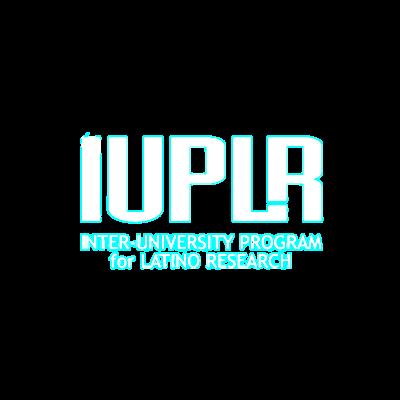Faculty

Fellowship 20th Anniversary




Our Mission
The Center for Latino Research (CLR) strives to open and sustain dialogues which foster the empowerment and advancement of Latinx communities To that end, the CLR creates learning opportunities for students and supports scholars in their research, while forging collaborative relationships with local, national, and international research partners
We also publish an award-winning scholarly journal, Diálogo, an Interdisciplinary Studies Journal, and sponsor many activities on campus, including film series and speaker series.
Bill Johnson González Director bjohns58@depaul edu Assistant Director mrealesv@depaul.edu Sara Department Assistant storre38@depaul.edu1985-1988
Armando Triana


Inaugurating Director
Center for Hispanic Research
1988-1992
Félix Padilla
Second Director
Sociology Professor
1992-2009
Félix Masud-Piloto
Third Director
History Professor
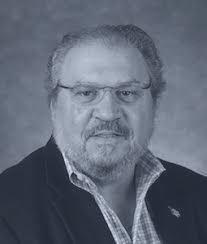
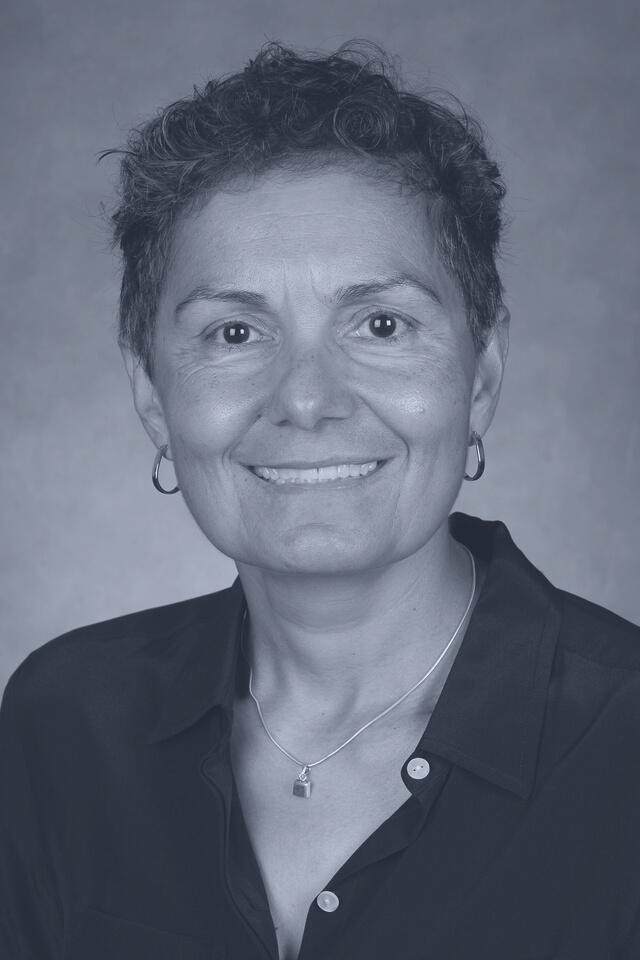
The CLR Faculty Fellowship is instituted under the leadership of Félix Masud-Piloto

Prominenthistorian,colleague,andfriend,FélixMasud-Piloto passedawayonFriday,March10,2023.Heservedasthethird directoroftheCenterforLatinoResearchfrom1992to2009,a periodinwhichhefoundedthejournalDiálogo(1996)and institutedtheCLRFacultyFellowship(2003).

The Center for Latino Research (CLR) has administered the CLR Faculty Fellowship since 2003 The program supports DePaul University faculty who conduct research on Latin American and/or U S Latino issues
The fellowship is supported by the College of Liberal Arts and Social Sciences, and grants a one-quarter teaching release (2 classes) for archival research, study and writing, initiating a new project of original work or expanding from earlier projects involving book or article writing, preparing research and writing for a conference paper or major talk In addition, the CLR provides up to 100 hours of student research assistant help during the research period.
This opportunity is open to full-time, tenure line faculty of any rank, with priority preference granted junior faculty, although it is the best proposal that will succeed Following the fellowship period, within one academic quarter, CLR Fellows provide a short oral presentation on their findings and process, scheduled on campus by the CLR Within one academic year, Fellows are required to submit a final outcome in writing to the Center, which can be an article or book chapter (drafted or completed, to be published), or written report
Applications are reviewed and determined by a new Selection Committee each year, drawn from previous Fellows
2003-2004
Layla P. Suleiman, School of Education
"Youth Researchers as Youth Development in Latino Communities"
Bernadette Sánchez, Psychology
"A Psychosociocultural Perspective of the Academic Experience of Latino Adolescents"
2004-2005
Susana S. Martínez, Modern Languages
"Mediated Images: Visual Representatives of Mayan Women in Modern Day Guatemala"
Jacqueline Lazú, Modern Languages
"From Cane to Fables: A History of Puerto Rican Theater in the United States"
Alesia García, English
"Las Lloronas in Action: A Latino Leadership Project (Latina Voces)"
2005-2006
Sylvia Escarcega, Latin American and Latino Studies
"Transnational Indigeneity: A Case Study of Indigenous Migrant Culture in Chicago"
Juan Mora-Torres, History
"'Me Voy P'al Norte (I'm Going North)': The First Great Mexican Migration to the United States, 1900-1932"
"Thefellowshipallowedmetoresearch andwriteachapterofawork-in-progress manuscript,MeVoyP'alNorte:TheFirst GreatMexicanMigration,1890-1940 Anotherresultofthefellowshipwasthe publicationofabookchapter,""Losde afueranovienen,losdecasasevan":The FirstMexicanMigrations,1848-1910,"in BeyondBorders:MexicanImmigrationto theUnitedStates(OxfordUniversity Press,2011)"
~
Juan Mora-Torres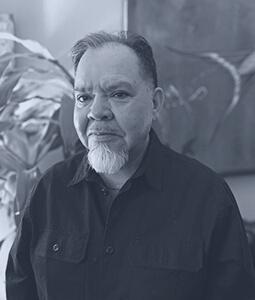
2006-2007
John Tofik Karam, Latin American and Latino Studies
"Seeking Arabs: Latinos, El Clon, and Post-9/11 Chicago"
Jacqueline Lazú, Modern Languages
"Urban Removal, Revolutionary Maneuver: The Voices of the Chicago Young Lords"
José Soltero, Sociology
"Mexican-African and Mexican-Puerto Rican Conflicts in Chicago: Myth or Reality?"
2007-2008
Amor Kohli, African and Black Diaspora Studies
"Cu-Bop, Castro, and the Formation of a Global Black Cultural Politics"
Anna O. Law, Political Science
"The U S Courts of Appeals and Latin American Immigration"
2008-2009
Stephen Haymes, Educational Policy Studies and Research, School of Education
"Collective Memory and Internally Displaced Afro-Colombians"
Julie E. Moody-Freeman, African and Black Diaspora Studies
"Framing History and Culture: Indigenous Identities as Cultural and Political Capital in Belize"
2009-2010
Winifred Curran, Geography
"Ethnicity, Immigration Status and Language in the Battle Over Schools in Pilsen: Gentrification and the Remaking of Public Education"
René de los Santos, Writing, Rhetoric, and Discourse
"Rhetorics of Mexican Revolution"
Rocío Ferreira, Modern Languages
"Yuyanapaq/Para Recordar/To Remember: Memory, Displacement, and Political Violence in Contemporary Peruvian Culture"
Antonio Polo, Psychology
"Improving the Health Literacy and Connection of Latino Families Referred to Mental Health Services"
Blackhawk Hancock, Sociology
"Converging Cultures: Latino Culture(s) Role in Defining Chicago's Haute-Cuisine"
Jason Goulah, Leadership, Language, and Curriculum, School of Education
"Soka Education in Latin America: A Case Study in Brazil Soka Elementary School and Brazil Soka Kindergarten"
2011-2012
Bill Johnson González, English

"'Con-Textos': Early Twentieth Century Latino Periodicals and the Early Latino Journals"
Bibiana Suárez, Art, Media, and Design
"Memoria (Memory): An Art Installation that Investigates the Place of Latino in the Cultural and Political Landscape of the U S Since WWII"
Thomas Krainz, History
"Fleeing Mexico's Revolution: El Paso's Treatment of Mexican Refugees, 1910-1920"
"This fellowship ended up being the seed for my research on the Bracero Program. I used my CLR Fellowship to research the work of Daniel Venegas, a Mexican immigrant who later became a journalist and then founded the humorous Spanish-language newspaper El Malcriado in the 1920s in Los Angeles Venegas's 1926 novel, Las aventuras de Don Chipote, o cuando los pericos mamen, which was published serially in this newspaper, is one of the few full-length novels written in Spanish in the US during the early 20th century. Since Venegas's text concerned the picaresque adventures of a migrant worker, I became interested in finding other texts on the same topic, and was eventually led to exploring the literary and filmic representations of the Bracero Program of the 1940s1960s. I'm grateful to the CLR fellowship for enabling me to explore historical archives and helping me to recover lost works of literature "
~ Bill Johnson González2012-2013
Camilla Fojas, Latin American and Latino Studies
"Border Media and New Space of Latinidad"
Adrienne Holloway, School of Public Service
"The Minority Suburbs: Does the Increase of the Minority Population in Suburban America Equate to Positive Geography of Opportunity Outcomes?"
Ana Schaposchnik, History
The Inquisition and the Crypto-Jews in 1600s Lima, Perú"
José Zagal, School of Cinema and Interactive Media, College of Computing and Digital Media
"Hispanic Perceptions of Race and its Representation in Videogames"
2013-2014
Hugh Bartling, Public Policy Studies
"Mexico City's Water Crisis and the Potential for Decentralized Solutions"
Juan Mora-Torres, History
"From Ceska-Pilsen to Little Mexico: The Making of a Chicago Barrio, 1960-1973"
Bernadette Sánchez, Psychology
"Mentoring, Ethnic Identity, and Positive Latino Youth Development"
2014-2015
Emanuele Colombo, Catholic Studies
"Mentoring, Ethnic Identity, and Positive Latino Youth Development"
María J. Ferrera, School of Public Service
"The YHSC Impact Study: Engaging Immigrant Youth in a Health Promotion and Outreach Program withn the Latino Community"
María Rosario Acosta López, Philosophy
"Conversations on Community, Memory, & Polticial Action (Seminiar with Jean-Luc Nancy)"
Cecilia Martínez-Torteya, Psychology, College of Science and Health
"Violence Exposure and Emotional/Behavioral Problems Among Latino Young Children: The Role of Family Immigration History"
Delia Cosentino, History of Art and Architecture
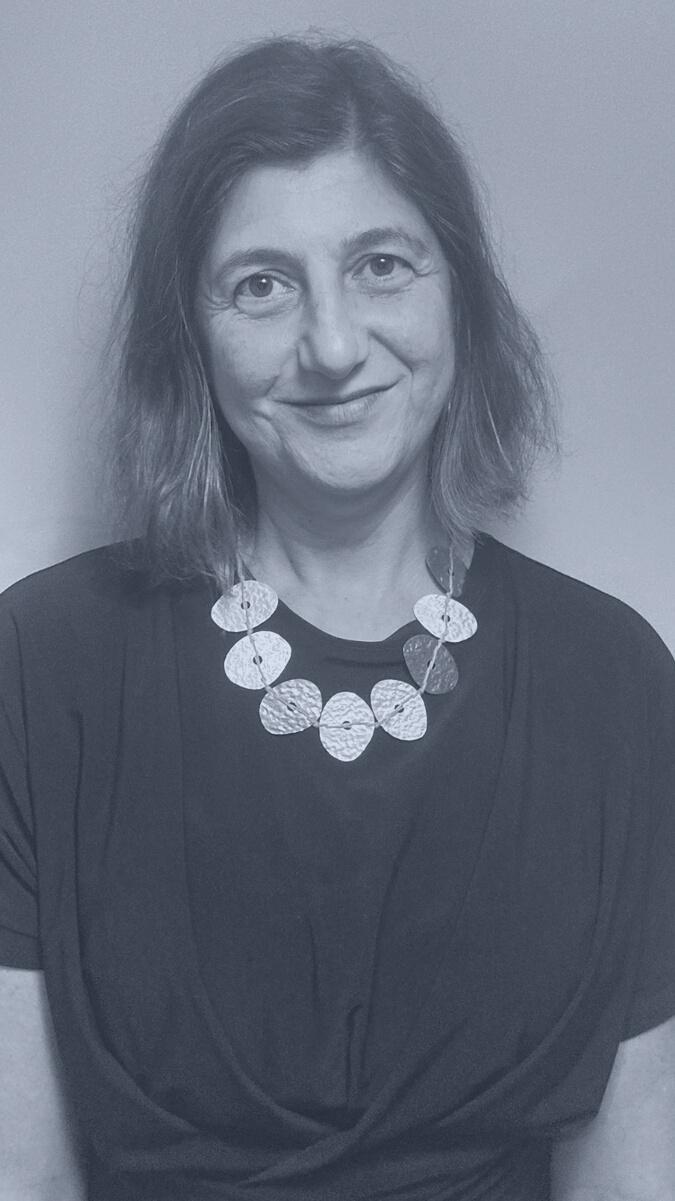
"The Aztec Calendar Stone in the Production of a 'Greater Mexico'"
Christopher Tirres, Religious Studies
"Decolonial Aesthetics as a Source for Decolonial Spirituality?: Expanding Walter Mignolo's Spiritual-Philosophical Vision"
"Two CLR Fellowships have been invaluable in helping me advance my scholarship During the first (2015-2016), I mapped and analyzed the Sun Stone medallions along 18th Street in Chicago’s Near West Side I was invited to present my findings as part of the public talk series Zona Abierta, in the Rafael Cintrón Ortiz Latino Cultural Center at UIC, entitled “Politics of Space: the Aztec Calendar Stone in Pilsen” (2017) During that same term, I also wrote an article on the Michoacán-born, Pilsen-based muralist Hector Duarte, later published in Diálogo Vol. 20.1 (2017).
My second fellowship (2020-2021) allowed me to finish the introduction to Resurrecting Tenochtitlan: Imagining the Aztec Capital in Modern Mexico City, co-authored with Adriana Zavala (University of Texas Press, 2023)
I am deeply grateful for the support of my fantastic research assistants during my CLR Fellowships, Michelle Hurtado and Monserrat Marchan "
2016-2017
Meghan Condon, School of Public Service
"Immigrant Inclusion in the Safety Net and Latino Youth Development"
Susana S. Martínez, Modern Languages
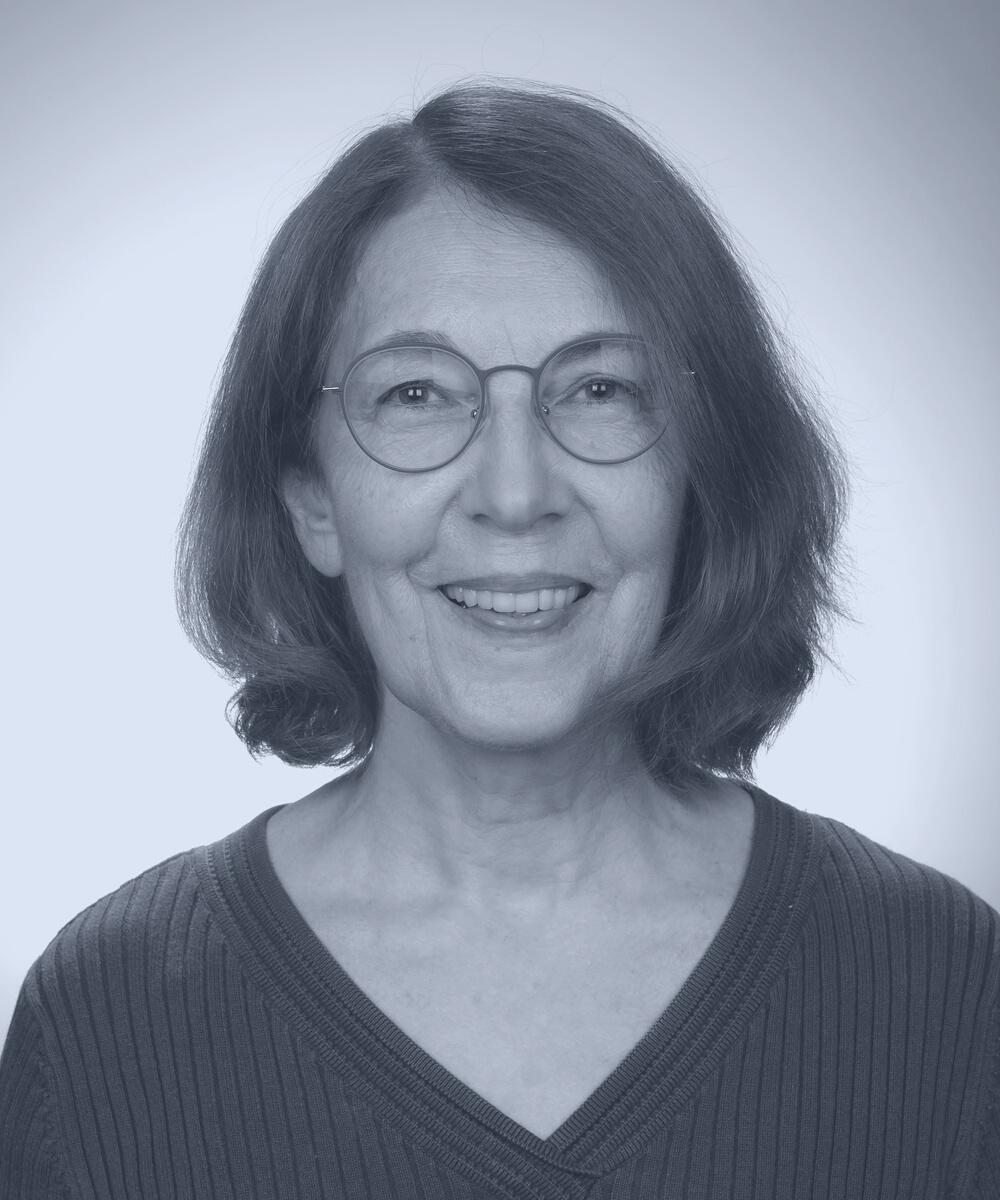
"Disposable and Deportable: Bearing Witness to Testimonies of Central American Migration"
Carolina Sternberg, Latin American and Latino Studies
"Understanding 'Simulated' Urban Middle-class Identities in Neoliberal Buenos Aires"
2017-2018
Rose Spalding, Political Science
"Subterranean Politics: Mining and Resistance in Central America"
José Soltero, Sociology
"Factors that Influence Poverty among Mexican Immigrants in the Chicago Area"
Carolina Barrera Tobón, Modern Languages
"Children’s Language Use in a Chicago Spanish Immersion Early Education Classroom"
Ida Shiela Salusky, Psychology
"The Roles of Identity and Supportive Social Networks in College Persistence for First Generation College Students"
As a direct result of her fellowship, Rose Spalding published "From the Streets to the Chamber: Social Movements and the Mining Ban in El Salvador" in the European Review of Latin American and Caribbean Studies, No 106 (July-December 2018).
2018-2019
Ana Schaposchnik, History
"Prisoners’ Agency in the Cells of the Lima Inquisitions (Perú, 1570-1820)"
Rocío Ferreira, Modern Languages
"Las mujeres disparan: Imágenes y poéticas de la violencia política en la novela peruana"
Bradley Hoot, Modern Languages
"Linguistic Properties of Bilingual U S Latinos’ Spanish/English Code-Switching"
Bradley Hoot published two articles in 2021 that were the direct result of his CLR 20182019 Fellowship: "On the position of subjects in Spanish: Evidence from code-switching" in Glossa a journal of general linguistics, Vol 6 (2021), and "Code-switching Evidence."

Ana Schaposchnik published the article "The Dungeons of the Lima Inquisition: corruption, survival, and secret codes in colonial Peru" in Colonial Latin American Review, Vol 29 3 (2020) after the completion of her 2018- 2019 CLR Fellowship
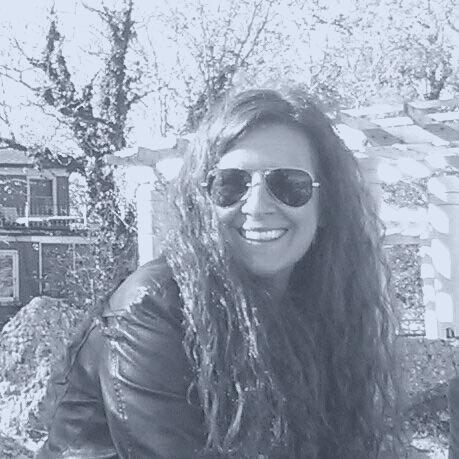
Rocío Ferreira's conference paper was accepted for the XXX Association of Gender and Sexuality Studies (AGSS) Congress, held November of 2021 in Santo Domingo, Dominican Republic
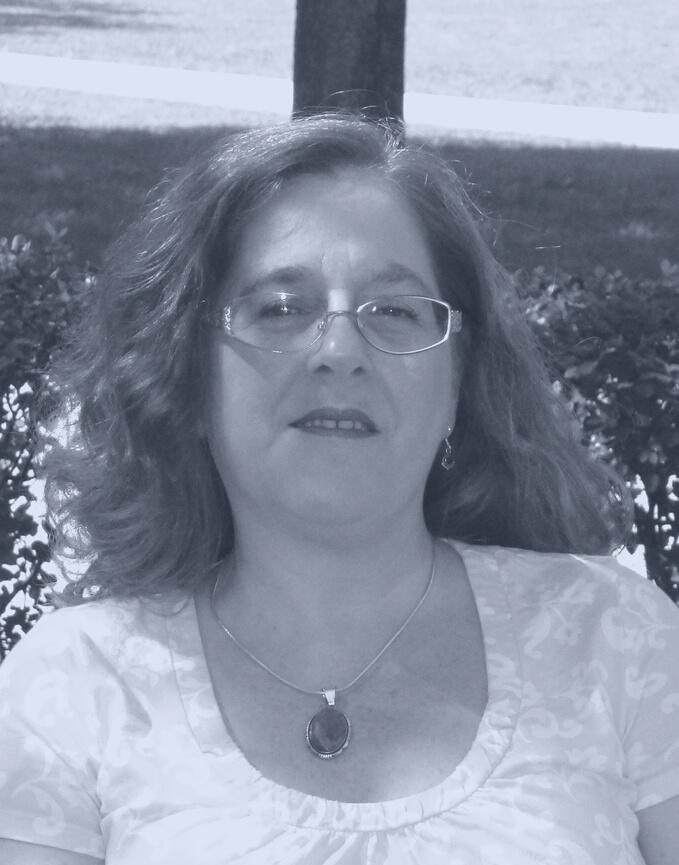
Fanny Söderbäck, History
"Stranger than Other Strangers: On the Figure of the Foreigner in Kristeva and Anzaldúa"
Chris Tirres, Religious Studies
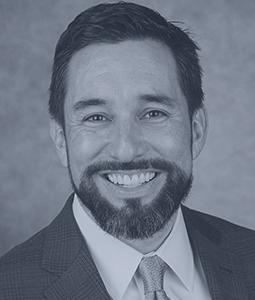
"Virgilio Elizondo's Implicit Evolutionary Cosmology"
Lourdes Torres, Latin American and Latino Studies

"Code-Switching in Latina/o Picture Books"
Christopher Tirres' project resulted in three publications: "Spiritual Realities and Spiritual Activism: Assessing Gloria Anzaldúa’s Light in the Dark/Luz en lo Oscuro” in CLR's journal, Diálogo, Vol 21 2; “Spiritual Activism and Praxis: Gloria Anzaldúa’s Mature Spirituality” in Inter-American Journal of Philosophy, Vol 10 1 (2019); and
“Spiritual Activism and Praxis: Gloria Anzaldúa’s Mature Spirituality” in The Pluralist, Vol 14.1 (2019).
“The CLR not only helps individual scholars; it also nurtures our scholarly community.”
Lourdes Torres co-authored the article, “Jugos There?” Codeswitching Strategies in Bilingual Picturebooks" with her partner, Amina Chaudhri, published in Children’s Literature in Education, No. 53.
2020-2021
Emanuele Colombo, Catholic Studies
"Missions and Memory Indigenous Narratives of the Jesuit Reductions"
Delia Cosentino, History of Art and Architecture
"Resurrecting Mexico-Tenochtitlan, 1915-1965"
Joe R. Tafoya, Political Science

"Bringing in Detatched Latinos: The Link Between Voting and Decision-Making Under Risk"
a CLR Faculty Fellow, I refined a chapter of dissertation into a manuscript for publication. manuscript is under review in the Journal of ics, Groups, and Identities. My project sed on what is not known about Latino nonrs outside of the political system I found that oeconomic disadvantage leads non-voter nos to accept large risks to improve financial pects Since so many Latinos behave as if have nothing to lose, their propensity to suffers because they are busy securing c needs My research looks at Automatic r Registration laws in CA, NY, and IL to ce barriers for participation to secure ter mobilization by marginalized Latino ps. ”
~ Joe R Tafoya2021-2022
Carolina Sternberg, Latin American and Latino Studies
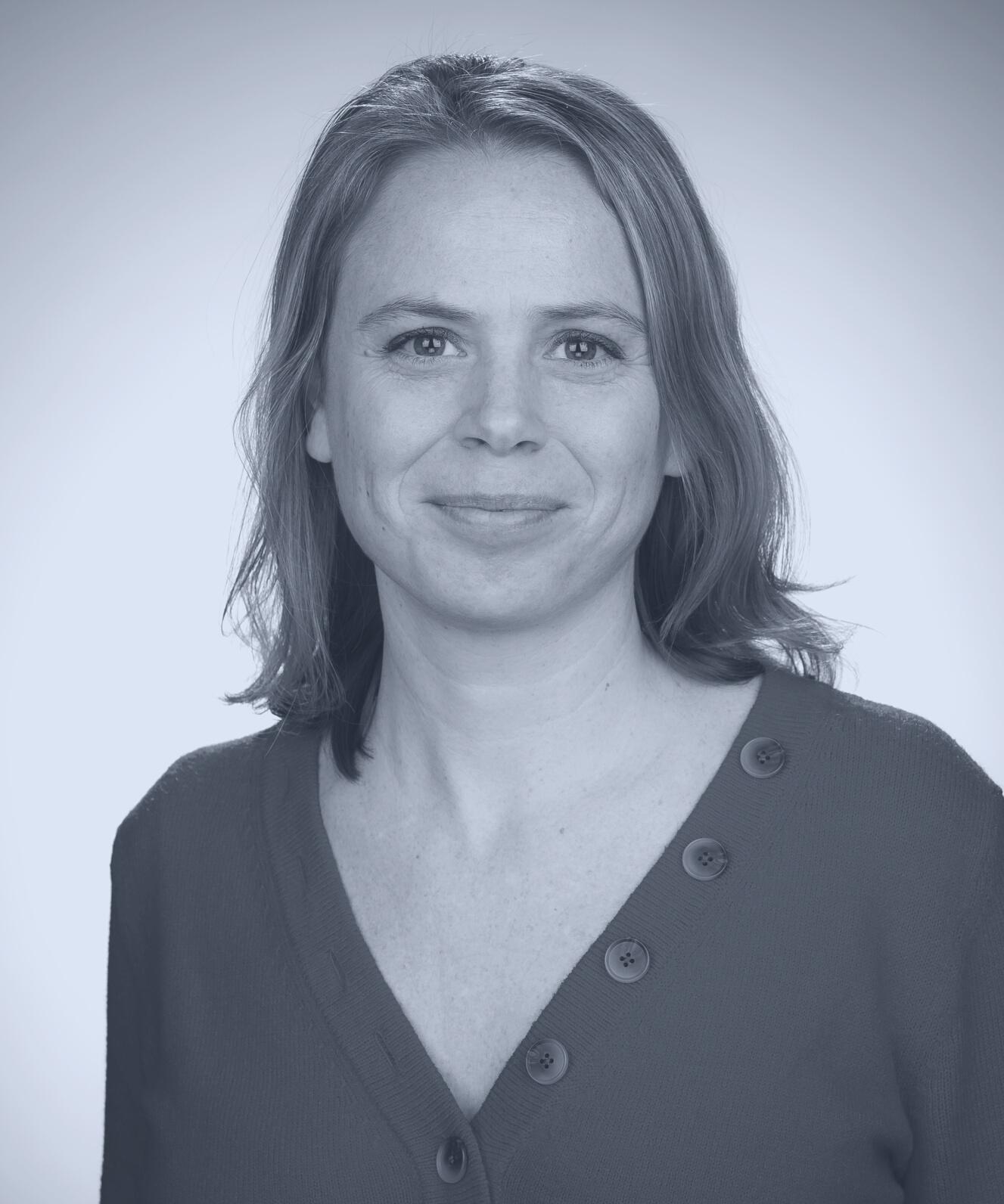
"Neoliberal Urban Governance Spaces, Culture and Discourses in Buenos Aires and Chicago"
Rafael Vizcaíno, Philosophy
"Women of Color Feminist Critique as a Decolonizing Spirituality"
Francesca Royster, English
"Listening for my Mother: Travels in Music from Chicago to Bahia"
"My recently published book, Neoliberal Urban Governance. Spaces, Culture and Discourses
Buenos Aires and Chicago (Palgrave MacMilla owes much to the Center for Latino Research Fellowship at DePaul University for contributin to bringing dreams of this project to reality; by financially supporting my book project and by making it possible to finish writing the last, but not least, book chapters "
2022-2023
Heather Montes-Ireland, Women’s and Gender Studies
"Decoupling Work and Dignity in Latina Visual Culture”
Ana Schaposchnik, History
"Did the Holy Office Leave Room for Agency?: The Trial of Faith of Francisco Vázquez (Lima, 1600s)”
Monica Reyes, Writing, Rhetoric and Discourse
“Shelter Rhetorics: Storytelling within the U.S. Asylum Process”
TheCLRFacultyFellowshiphassupported46facultymembersfrom programsacrosstheuniversitybyprovidingresourcesandtimetoconduct researchandproducearticlesandbookchapters Thefellowshipmadeit possibleforthreeofourrecentfellows,CarolinaSternberg,DeliaCosentino andLourdesTorres,tofinalizetheirbookprojects,allpublishedin2023.
Carolina Sternberg
Latin American and Latino Studies
Neoliberal Urban Governance Spaces, Culture and Discourses in Buenos Aires and Chicago

Palgrave MacMillan, 2023
Lourdes Torres
Latin American and Latino Studies
Kim Potowski, University of Illinois at Chicago
Spanish in Chicago
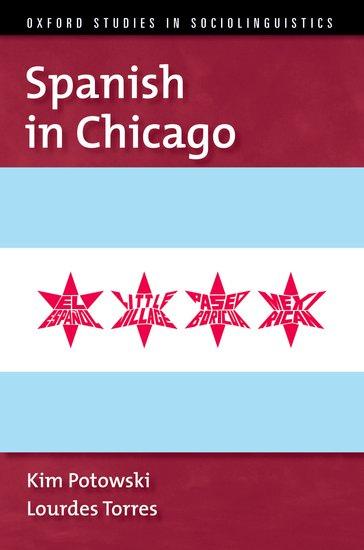
Oxford University Press, 2023
Delia Cosentino
History of Art and Architecture
Adriana Zavala, Tufts University
Resurrecting Tenochtitlan Imagining the Aztec Capital in Modern Mexico City
Texas University Press, 2023
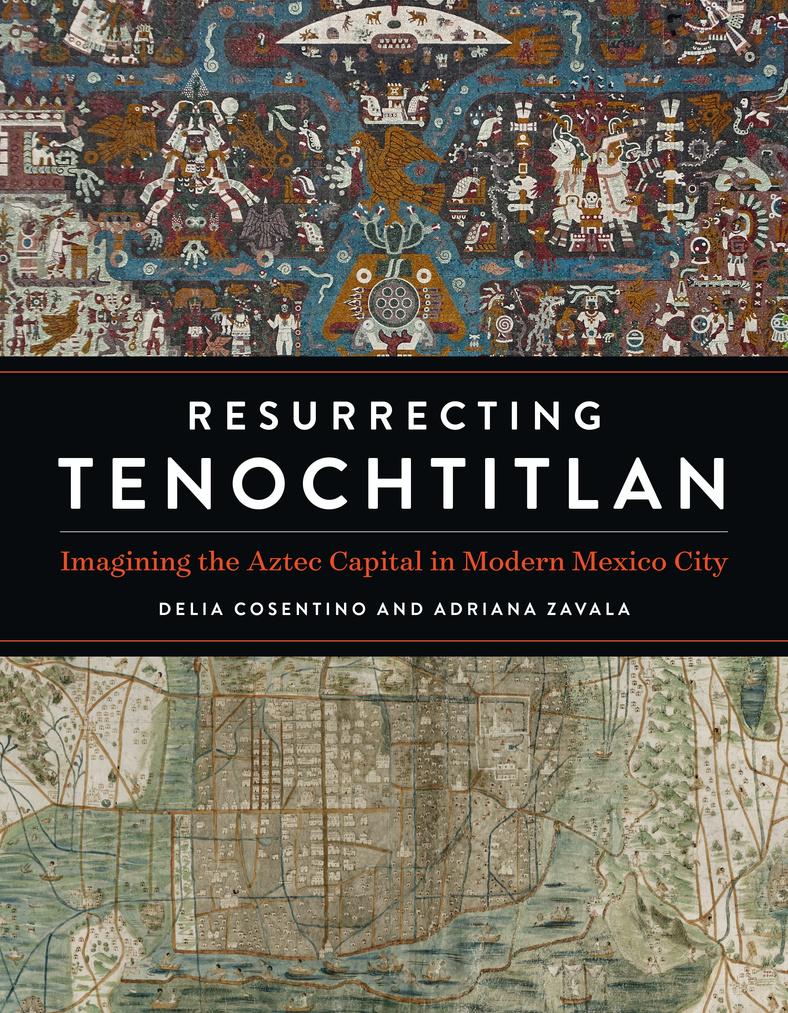
The Center for Latino Research was a founding partner of the Midwest Consortium for Latino Research (1988-1999), and is currently a member center of the national consortium for policy issues, the Inter-University Program for Latino Research (IUPLR)
